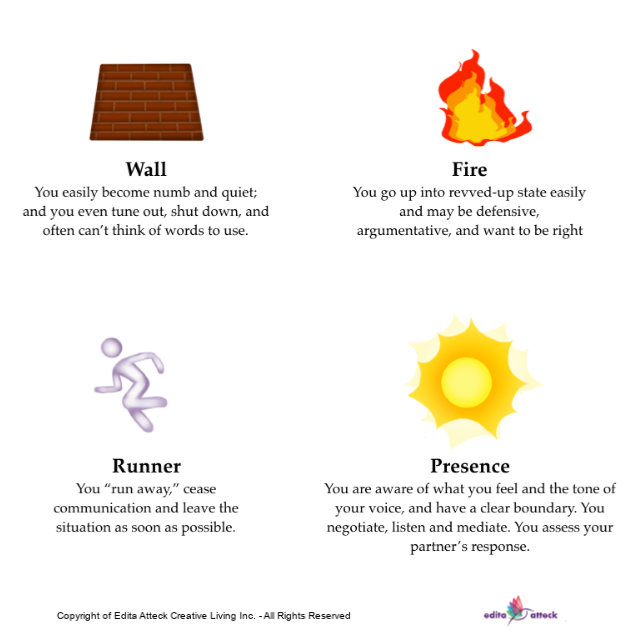The power of your soft skills
A lot is being said today about the power of our "soft" skills.
If you are considering improving your soft skills, I am inviting you to reflect on your habitual patterns.
(Soft skills include our communication ability, attitude, listening skills, flexibility, positivity, creative thinking, etc.)
You see, unconsciously, you form patterns throughout your life.
We all do!
The best way to get a sense of one of your patterns is through identifying
your habitual response in the face of conflict.
Look at your relationships: both personal and work related. And specifically, reflect
on how you show up in the face of an argument with the people around you.
Conflict in life is inevitable.
It simply happens since we are all unique and often share different perspectives
and opinions.
Can you identify a HABITUAL pattern?
Read the blog post via video...
As you reflect, you may also identify a HABITUAL pattern of someone you know –
your partner, family member or a colleague.
You may recognize that certain patterns show up for you with specific people.
Consider:
Don’t rush to answer.
Sit with this for a while.
Recognizing our patterns is one of the most important things we can do on our journey to developing and honing our soft skills as well as deepening our personal development; not to mention improving our self-leadership and health.
Have a look at the image and see if you can identify with one of the metaphors
(this image is from my book Awaken Your Inner Leader: Transform Stress, Develop Emotional Mastery and Thrive).

I also suggest that you keep notes throughout the day and write down your observations and reflections on:
1. how you handled conflict outwardly
and
2. how you handled the same conflict inwardly (inside your body and mind).
And remember that, while our outward actions and words end with the specific situation, the inward aspects are often lingering for a lot longer.
Want to improve collaboration and communication in your life?
Let’s discuss patterns and how you can get to a place of a powerful self-leadership.
With love and gratitude,
Edita
